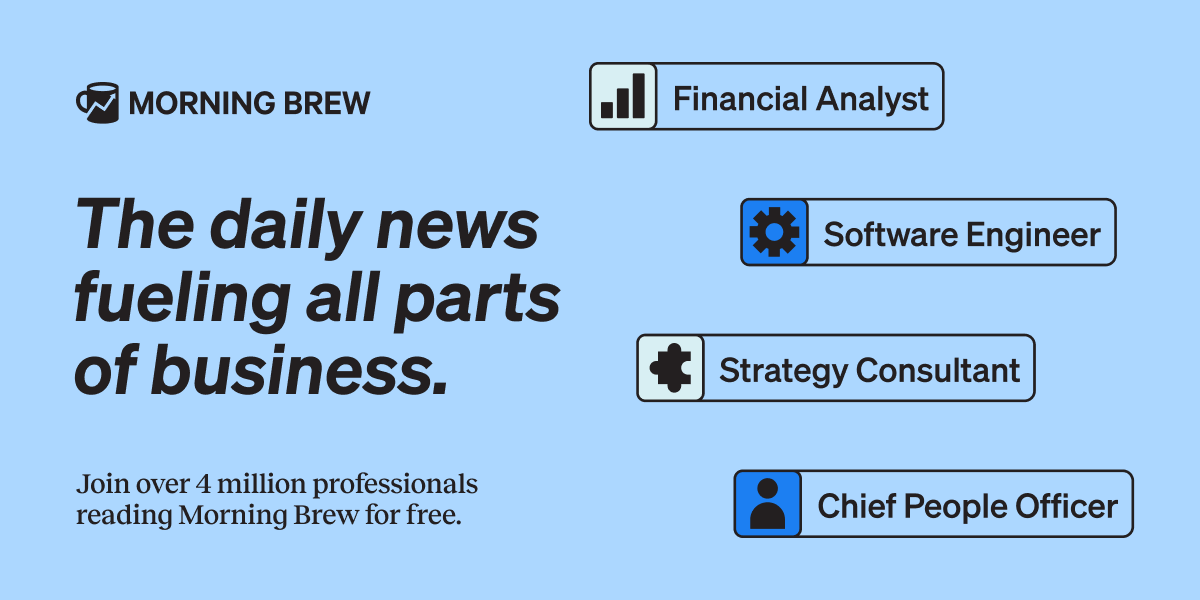- Ben J. Clarke
- Posts
- Migrants and AI
Migrants and AI
Both will be under the spotlight in 2025 and beyond.
Some things are so ballsy that you have to give them a mental high-five. Not because you necessarily love or hate them - you could be completely blasé - but because they stick their middle-finger to world, poke their tongue out, swear loudly and we all enjoy chaos. If you doubt this, explain Mötley Crüe. Last December's billboard campaign by an AI company named Artisan fits the brief, albeit with less debauchery and cool than Nikki Stix.
Artisan is part of the venerable Y-Combinator stable, so we can assume it made a purposeful and conscious decision when it bought billboards across San Francisco and sold "AI employees" to passers-by. And we can also assume the company knew that, San Francisco being San Francisco, it wouldn't take long for someone to photograph a homeless person slumped beneath one of them.
With slogans like "Artisans won't complain about work-life balance" and the blunt "Stop hiring humans", this campaign seemed designed to trigger dystopian anxieties and send anti-AI social media users into a tailspin. It worked, of course, and Artisan reaped a ton of free viral marketing in the guise of negative press.
Ethics aside, this was an excellent and efficient use of an advertising budget. It is also very unlikely to alienate Artisan's target market since the company's primary offering is an outbound sales platform. You know that aphorism "AI won't take your job, but a person using AI will?" Sales people will jump on any AI advantage to get ahead of each other. So will coders, by the way - we use AI like a third arm - and if you think the more noble professions are immune, think again. I work almost entirely in healthcare, and every provider I know is looking for ways to incorporate AI into its processes, as well they should - anything that might increase clinical productivity and allow more patients to receive better treatments must be investigated.
Brass tacks, AI has been replacing some humans and boosting the productivity of others since the day any of us were born. We just haven't always called it AI. We've called it expert systems, machine learning, deep learning, whatever - it's all part of the same economic continuum as mechanisation and automation. The Luddites got angry about it when they smashed the looms, and people get angry about it now. Except now, the companies that own the new technology are actively claiming it's a march towards AGI and the end of human workers. This is new, and as far as socio-economic inflection points go, it’s massive.
So why do America's tech bosses need non-American humans to keep receiving H-1B visas? Why can't Earth's self-appointed technology epicentre maintain its economy with AI and some of its 340 million native-born people? It's certainly not, as some have suggested, that America's education system is inadequate (it isn’t) or because non-Americans are cheaper (on H-1B visas, they aren't). And while there is some validity in saying that America wants to attract the best of the global best to maintain an economic skill advantage, there has to be something more systemic going on because all advanced economies are doing the same thing.
California draws people from India, Germany hoovers up East Europeans, British universities have recruitment hubs in China, and we're all small-fry talent magnets compared to the wealthy Arab kingdoms. As for famously homogeneous and migrant-resistant Japan - it's a right-wing myth. The number of foreign workers in Japan has increased by 40% since the pandemic, and its government plans to double the cap over the next five years. The rich world is rainbow-coloured - I'm certain this is a strength, even though I can't quite articulate it.
I also can't articulate the certainty some people have that AGI is on the horizon, nor the certainty that others have that it isn't within reach. I don't know. My gut feeling is that a theoretically unbounded amount of scale would enable the current models to come close, but the amount of scale that's practically achievable is insufficient. In any case, the rich economies' current hunger for the world's skilled workers suggests that we won't all be losing our job opportunities any time soon.
But some of us will.
Thanks for reading. If you’re looking for other interesting things to read, check out this handy list.
The gold standard of business news
Morning Brew is transforming the way working professionals consume business news.
They skip the jargon and lengthy stories, and instead serve up the news impacting your life and career with a hint of wit and humor. This way, you’ll actually enjoy reading the news—and the information sticks.
Best part? Morning Brew’s newsletter is completely free. Sign up in just 10 seconds and if you realize that you prefer long, dense, and boring business news—you can always go back to it.
